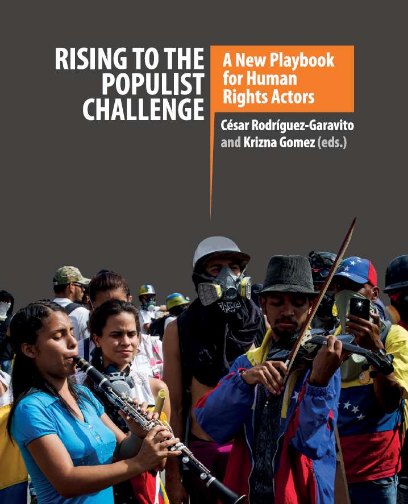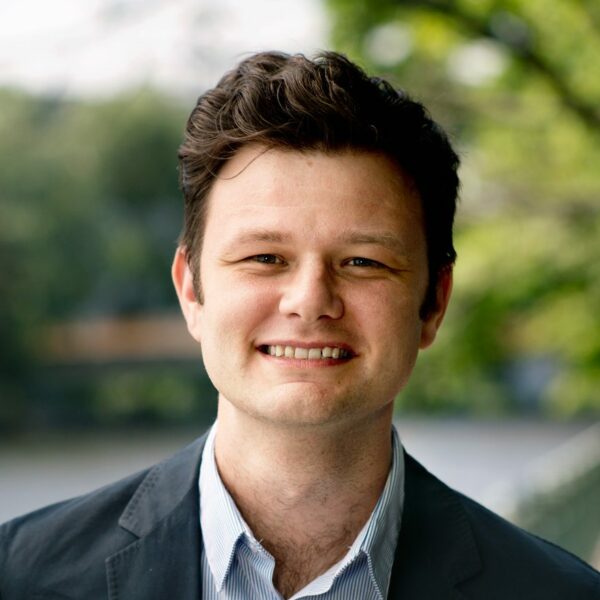This blog is written by Vicky Tongue, Programme Manager at the International Civil Society Centre and Krizna Gomez, from JustLabs. The blog looks at whow and why civil society can produce innovative responses to populism. Together they give a summary of the complex situation facings CSOs, reflect on some strategies to explore response and finally look at building alliances. This topic is our main focus at our Innovators Forum on 25 – 26 February 2019.
Rising with Brilliant People in our Beautiful City, by Vicky Tongue
As we highlighted earlier this week, CSOs need to reflect on their legitimacy, embrace innovative approaches, and collaborate to continue shaping the new global world order. In this blog, ahead of our Innovator’s Forum next week, we further explore these ideas in the context of ‘reframing narratives’.
The need for CSO dialogue, innovation and reinvention must increase in tandem with rising speed of toxic narratives.
The need for CSOs to (re-)act is greater than ever. This includes working together in smarter ways, trying to reconcile and integrate ‘us’ and ‘them’ societal divides, whilst positively promoting the integrity of our missions.
The challenges facing CSOs in this respect are manifold. Increased scepticism of human rights activism and NGOs’ work is being fuelled by strategically-targeted and politically-motivated communications. For example, branding concerned voices of dissent as unpatriotic or representing foreign interests, and twisting core humanitarian principles of neutrality into partisan narratives of furthering faith group interests. Peaceful non-violent social movements have been counter framed as terrorist organisations, and deliberately linked to alleged ‘hate crimes’ through false association on social media.
The speed with which new toxic narratives against the causes championed by CSOs are churned out by populists and other detractors requires even greater velocity in the responses. However, these responses must not inadvertently repeat the negative narratives and thus fuel them further, but instead offer a more encouraging vision of the future. A vision which communities and ordinary people can easily embrace. For this shift in approach, CSOs need a space and an approach which allows for fast, fresh, brave and long-term thinking.
Reflecting, by Krizna Gomez
At JustLabs, we have run a series of labs where people from very different fields of expertise brainstormed and designed solutions for civil society actors from facing serious challenges to their work because of negative narratives.
To ensure maximum innovation in thinking and to break the disciplinary silos which often isolate civil society from other fields which populists have been tapping into, only the clients came from the human rights field. All other participants were from other disciplines — political strategy, advertising, marketing, cognitive and behavioural sciences, business, and product development.
The workshops utilised design thinking, with its ethos of co-creation with the client, and stepping into the shoes of the communities with which they were seeking to rebuild relationships, while closely examining the power landscape they must navigate.
The outside perspectives helped open the clients up to new, potentially game-changing, narrative strategies which embrace emotions, tap into people’s values, and offer a sense of belonging to entire sections of society who feel excluded, ignored or left behind.
Adopting innovative approaches – which also “go back to the basics”
The prototypes produced in the labs reached out to people not on the usual basis of perceived threats or abuses by official power (for example, rallying people to protest an abusive policy) but rather by appealing to a sense of belonging, provide intellectual stimulation in cultural settings, or send messages which jive with their values from people they respect.
The imagery was not the traditional fists, protests, struggle/war or the scale of justice, but that of the “day-to-day”, the non-threatening and even the mundane, which tie communities and friends together—a cup of coffee, a football match, an embrace, even love. The narratives projected human rights not as a discourse or claim to legal protection, but as a bridge which connects people, a compass which guides people through a journey, and a glue which allows for ties that truly bind. Some of the narratives also used the metaphor of building and construction – where human rights are a blueprint or guide for creating a better society.
To achieve all these goals, civil society actors need the necessary support to skilfully use words in everything they say so they are grounded on findings from neuroscience and cognitive linguistics and involve mastery of sophisticated digital marketing tools—things they currently often do not have the expertise or means to do.
But beyond all this, we found that winning the narrative challenge means going beyond the mere use of clever words and social media hashtags. While narrative initiatives may often include communications campaigns, they encompass a broader array of tactics. In short, what civil society actors do—from the way we interact with communities, decide on the actors we work with, and design projects—is the narrative.
Building alliances, by Vicky Tongue
Civil society organisations can build broad alliances which cut across our work on different themes, enable both short- and long-term action, dialogue and organisation, and combine complementary strengths for both online and offline diplomacy and mobilisation.
In the US, InterAction’s Together Project continues its inspiring and innovative role as a solidarity hub for NGOs vulnerable to disinformation and discrimination. It is now using the skills, strategies and solidarity networks it has developed since 2017 to support new organisations facing unanticipated risks of false information attacks. Mob Lab is launching a new project to convene, building solidarity, and developing practical solutions among organisations, groups, and individuals to foster alternatives to the rise of the far right. Ahead of the EU elections in May, online movements and ICSOs are collaborating on anti-disinformation initiatives to protect European audiences from the proliferation of ‘fake news’.
And next week, brilliant people from the leading international CSOs, online movements, national CSO platforms, donors and media organisations will join us here in Berlin’s beautiful city, to reflect and build new dialogues and alliances on innovation. We can’t wait.

 experimentation. It stresses the need for formal CSOs to build ‘connective action’ – not just ‘collective action’, with social movements, online and grassroots activists, think tanks, and other actors responding to these issues. CSOs need to strengthen horizontal collaboration with these peers, create transformative relationships and effective mobilisation both on and offline, and find connective messages which ‘cut through the clutter’ in a crowded and fragmented social media environment.
experimentation. It stresses the need for formal CSOs to build ‘connective action’ – not just ‘collective action’, with social movements, online and grassroots activists, think tanks, and other actors responding to these issues. CSOs need to strengthen horizontal collaboration with these peers, create transformative relationships and effective mobilisation both on and offline, and find connective messages which ‘cut through the clutter’ in a crowded and fragmented social media environment.






